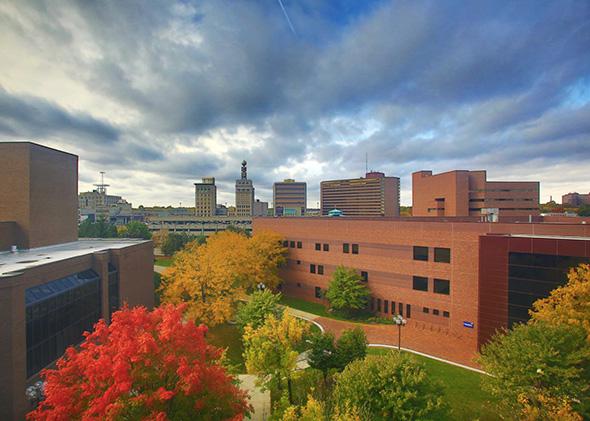This article originally appeared in Inside Higher Ed.
Tragedy was not averted at Seattle Pacific University Thursday afternoon: A man fired gunshots that killed one student and left three injured. The potential massacre was cut short, however, when Jon Meis, a 22-year-old engineering student, pepper-sprayed and tackled the gunman, who had paused to reload. The shooter, Aaron Ybarra, later told detectives that he’d wanted to kill as many people as possible.
Meis was working as a student building monitor when he rushed to subdue the shooter. Seattle Pacific officials declined to share details about the 22-year-old’s building-monitor job, saying the institution was not commenting on its security programs at this time. Officials also declined to confirm whether Meis was carrying pepper spray as part of his campus job. (His roommate told the Seattle Times that the student takes the spray with him wherever he goes.)
At a time when concealed-carry advocates often insist that allowing students to carry guns will improve campus safety, experts say students—typically armed with defensive spray and training in radio dispatching and verbal commands—already make outsized contributions to campus security.
Student security jobs such as Meis’ are a fixture at “a very large number of universities and colleges across the country,” said David Perry, assistant vice president for safety and chief of police at Florida State University.
“It’s almost a common practice, if not a best practice, to employ student escorts, student security officers, on colleges and universities,” he said.
Perry, president-elect of the International Association of Campus Law Enforcement Administrators, which represents more than 1,200 colleges and universities in 20 countries, stressed that Meis’ intervention in the campus shooting was unusual.
“He was heroic,” Perry said. “He went above and beyond what the training and what the requirements were for this job. I applaud him for going above and beyond that to protect human lives. But he wasn’t trained to be proactive; he’s trained to be in a defensive posture and report that immediately to dispatch and police.”
Institutions routinely employ students as security guards to “serve as a force multiplier”—extra sets of eyes and ears that can report suspicious activity—for campus police units, Perry said.
At the University of Michigan at Flint, officials credit the increased use of student patrols with a reduction in campus crime, MLive reported.
The job description varies from institution to institution. The University of Nevada at Las Vegas employs six student security officers, said Lieut. Jeff Green, an officer in the UNLV department. UNLV’s student guards are outfitted only with radios. They receive “no formal training” apart from learning how to use these devices, which keep them in constant communication with dispatchers, Green said.
At LeTourneau University, a small Christian institution in east Texas, student guards made up the bulk of the campus-security apparatus for about 30 years. Until January 2009, the school had no police department, said Terrance Turner, LeTourneau’s chief of police. Student officers patrolled the campus and reported to two professionals. Four part-time and two full-time police officers now supplement the student workers, Turner said.
The Texas institution currently employs 11 students as guards. Each “recruit” (as Turner called them) receives 40 hours of field training, including empty-hand martial arts tactics. All student guards carry pepper spray, Turner said. He recalled only one instance in the past 10 years when a student guard used the spray in an altercation (it was during a theft).
Perry said best practices for institutions that employed student guards included training the students in “verbal judo” to help them issue commands authoritatively, and giving the guards pepper spray to use defensively.
In a statement released Monday, Meis said he was able to stop the shooter “through God’s grace.” The student, who has attracted more than $50,000 in unsolicited gifts for his honeymoon, requested in the statement that any future donations go to the Seattle Pacific victims.
